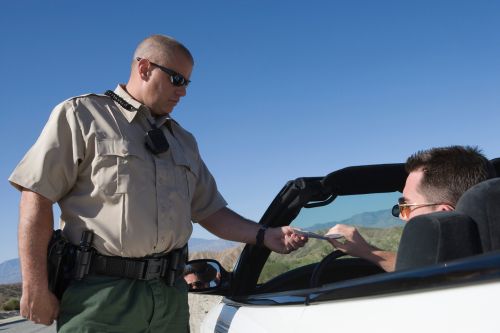Speeding is a common traffic offense. However, when drivers push the envelope to extreme levels, the consequences can be severe both legally and personally. Understanding the legal implications of extreme speeding violations is crucial for anyone who finds themselves tempted to break the speed limit excessively.
This article delves into the ramifications of such actions and underscores why adhering to speed limits is important. Read on.
Table of Contents
What Constitutes Extreme Speeding?
While speeding is generally defined as operating a vehicle above the posted speed limit, extreme speeding takes it a step further. Typically, this involves driving at speeds significantly higher than the limit.
This is such as 20 mph or more over the posted limit in many jurisdictions. It is also referred to as “reckless driving” or “excessive speeding,” depending on local laws.
Legal Consequences
Extreme speeding, also known as reckless driving, is a serious offense that can have severe legal consequences. Here are some of those.
Hefty Fines and Penalties
One of the most immediate repercussions of a first speeding ticket is the imposition of hefty fines. Depending on the jurisdiction and the speed over the limit, these fines can range from a few hundred to several thousand dollars.
In some areas, fines may increase with each additional mile per hour over the limit. This makes felony speeding an extremely costly endeavor, so it might be worth hiring a lawyer to fight careless driving ticket charges if you believe the fine has been calculated incorrectly. A black box is usually useful in this situation, as it can record speed data and provide proof of your real speed.
License Suspension or Revocation
Another significant consequence of driving fast is the potential suspension or revocation of one’s driver’s license. For first-time offenders, the license suspension period might be relatively short.
However, repeat offenders could face lengthy suspensions or permanent revocation. Losing the ability to drive can have far-reaching effects, including difficulties in:
- commuting to work
- attending school
- managing daily chores
Criminal Charges
In extreme cases, speeding can lead to criminal charges. Many jurisdictions treat excessive speeding as a misdemeanor or even a felony. Especially if it leads to accidents or injuries.
Criminal charges bring about serious legal ramifications, including:
- possible jail time
- probation
- a permanent criminal record
This can affect one’s employment opportunities, housing options, and overall quality of life.
Increased Insurance Premiums
Even if extreme speeding does not result in an accident, it almost certainly will result in higher insurance premiums. Insurance companies view extreme speeding violations as indicators of high-risk behavior.
As a result, those charged with such offenses can expect their premiums to skyrocket. In some instances, acquiring auto insurance may become difficult or nearly impossible.
Civil Liability
If extreme speeding leads to an accident causing property damage, injuries, or fatalities, the driver may also face civil liability. Victims of such incidents have the right to sue for damages.
This potentially leads to substantial financial burdens. This includes compensation for:
- medical bills
- lost wages
- property repair or replacement costs
- emotional distress
Why Adhering to Speed Limits Matters
Speed limits are not arbitrary numbers. They are established based on thorough research and analysis to ensure the safety of all road users. Exceeding speed limits significantly increases the likelihood of accidents.
Adhering to speed limits is a simple yet effective way to contribute to road safety. Consulting an attorney can help beat an exhibition of speed ticket.
Learn The Consequences of Extreme Speeding
Understanding the legal implications of extreme speeding violations underscores the importance of adhering to speed limits. It’s not just about avoiding penalties.
It’s about ensuring the safety of everyone on the road. Next time you’re behind the wheel, remember that breaking the limit can break more than just the law-it can break lives.
If you want to read more articles, visit our blog.



